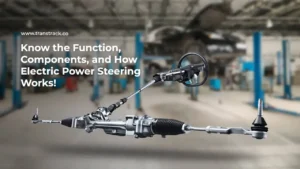Business Transformation 2024: Optimize with Robotic Process Automation!
Posted on August 19, 2024 by Nur Wachda Mihmidati

The Robotic Process Automation (RPA) market in the Asia-Pacific region is expected to register significant growth with a compound annual growth rate (CAGR) of 34.8% during the forecast period. RPA involves the application of smart software to carry out high-volume and repetitive tasks that usually take a long time and tend to be monotonous if performed by humans. This technology offers an effective solution to automate processes that previously required intensive manual intervention, thereby enabling organizations to improve efficiency and productivity.
Asia-Pacific is the fastest growing region in the RPA market, expected to reach a value of USD 7,697.1 million by 2030 (Grand View Research, 2024). This growth is driven by the growing need for enterprises to optimize their operations through automation, as well as the increasing adoption of digital technologies in the region.
According to a report from Mordor Intelligence, this rapid growth reflects the increasingly widespread adoption of RPA across various industry sectors in Asia-Pacific, where companies are seeking to optimize their operations, reduce costs, and speed up turnaround times for administrative tasks. As more organizations adopt this technology, RPA is expected to continue to grow and make a significant positive impact on the way businesses are conducted in the region.

China to Hold the Largest Market Share in Robotic Process Automation
China is expected to hold the largest market share in Robotic Process Automation (RPA) in the Asia-Pacific region. The growth of RPA adoption in China is driven by the increasing use of automation technologies across the region. As the Asia-Pacific region continues to experience population decline, China has accelerated its adoption of technology to overcome these challenges and improve operational efficiency.
For many years, China was known as a hub for cheap labor, but recently, many companies and government agencies have begun to leverage technology to improve their efficiency. This reflects a shift from reliance on manual labor towards more sophisticated automation.
China is also playing an important role in advancing the adoption of RPA and the development of artificial intelligence (AI). Many local Chinese companies have embarked on their RPA journey to manage costs and increase business value. The massive transformation taking place in the manufacturing sector, which is an integral part of the Chinese economy, has accelerated the adoption of industrial automation using physical robots.
These changes create the need for disruptive technologies such as RPA, which help companies focus on product innovation and their core strengths, instead of repetitive yet essential daily tasks. Thus, China is not only a pioneer in industrial automation but also in the application of RPA, affirming its position as a global leader in the manufacturing market and automation technology.
Growing Demand for Business Automation Drives the Growth of Robotic Process Automation Market in Indonesia
Not just in China, Indonesia also has a surging demand for automation of business operations, which has been a major catalyst to drive the rapid growth of the Robotic Process Automation (RPA) market. In Indonesia, a whopping 71% of companies indicated intentions to increase investment in digital technologies by 2021, with big data analytics and artificial intelligence (AI) among the top three technologies planned for investment in the next 2-4 years (Market Research Future, 2024).
Research from Padjadjaran University in Indonesia shows that processes automated with RPA exhibit impressive speed, completing tasks 8.47 times faster compared to manual methods and without errors. In one particular study, the process from invoice to payment for a telecommunications company was automated using UiPath, one of the leading RPA providers. The results were significant, with the average transaction time per process cut to just 19 seconds, compared to 2 minutes 41 seconds in the manual process.
This data illustrates how RPA can transform the way companies manage their business processes, increasing efficiency and reducing the time taken to complete critical tasks. With the growing adoption of digital technology, especially in advanced technology sectors such as RPA, Indonesia shows a strong commitment to investing in solutions that can accelerate processes and increase productivity across industries.
Robotic Process Automation Adoption in Various Industry Sectors in Indonesia
PwC has conducted a comprehensive survey to measure the adoption rate of Robotic Process Automation (RPA) across various industry sectors in Indonesia. The survey took place online from January to February 2020 and targeted various industries and businesses in Indonesia.
The survey results show that the manufacturing sector leads in RPA adoption with 29% of the respondents coming from this industry. This reflects the high need within the manufacturing industry to automate complex and repetitive processes to improve production efficiency. Financial services and capital markets took second place with 22% of respondents, indicating that this sector also relies heavily on RPA to manage large transaction volumes and ensure regulatory compliance.
In addition, the transportation and logistics sector accounted for 9% of participation, indicating the important role of RPA in optimizing supply chain and logistics management. The general services and retail sectors each contributed 7%, indicating that companies in these fields are beginning to see the benefits of process automation to improve customer service and operational efficiency.
The cosmetics & healthcare and construction & property industries also showed interest in RPA with 6% of respondents each, indicating the growth potential of RPA in these sectors. Meanwhile, the plantation and oil & gas industries have lower adoption, at 4% each, but still show that RPA is starting to penetrate traditional sectors that were previously not heavily automated.
This survey provides a clear picture that RPA has become an important tool in various sectors in Indonesia, especially in industries with high automation needs such as manufacturing and finance. With more and more industries adopting RPA, it is expected that this technology will continue to grow and spread to other sectors.

Research shows that Robotic Process Automation (RPA) has become an important pillar of digital transformation in Asia-Pacific, including Indonesia. With rapid growth, RPA is now a necessity for companies looking to improve operational efficiency.
The implementation of Robotic Process Automation (RPA) at TransTRACK, as a fleet operation optimizer and supply chain integrator, can have a significant impact on operational efficiency and effectiveness. By automating data management, fleet tracking, maintenance management, and payment and documentation processes, TransTRACK can reduce manual errors, speed up processes, and improve operational accuracy.
This RPA integration not only strengthens TransTRACK‘s position in the industry, but also ensures that the services provided are always up-to-date and in line with dynamic market demands. Through this optimization, TransTRACK is able to deliver more efficient and advanced solutions, providing significant added value to customers and driving operational success throughout the supply chain.
Recent Post
Know the Function, Components, and How Electric Power Steering Works!
December 24, 2025Know the Types of Buses Based on Their Model, Size, and Capacity!
December 22, 2025Topic :
Recommended Articles

 Bahasa Indonesia
Bahasa Indonesia








